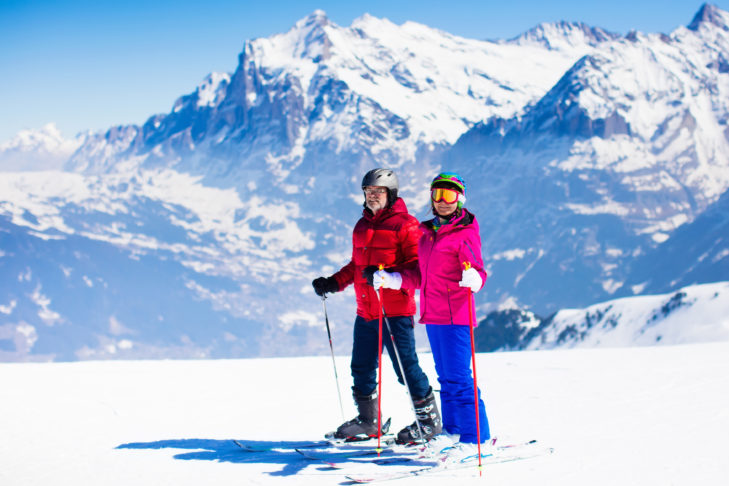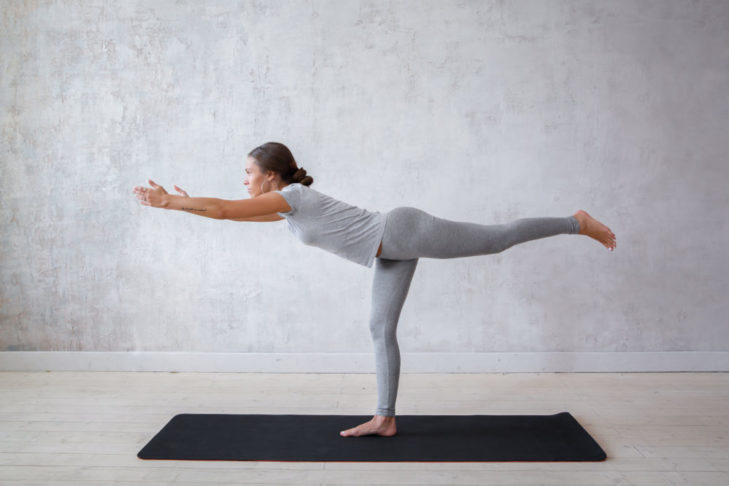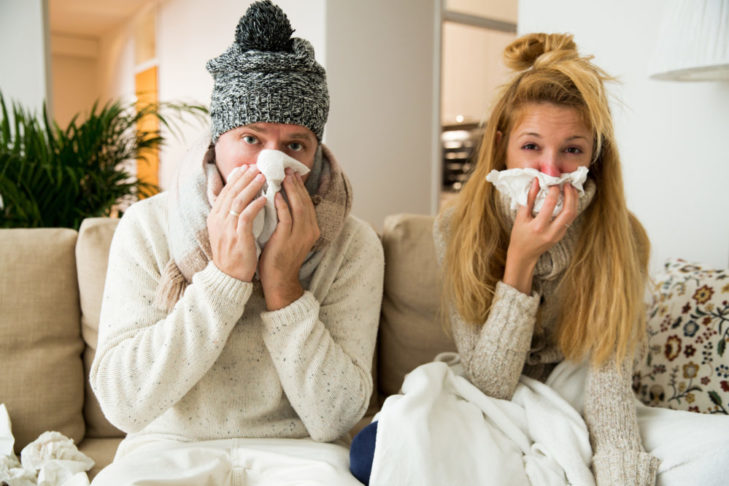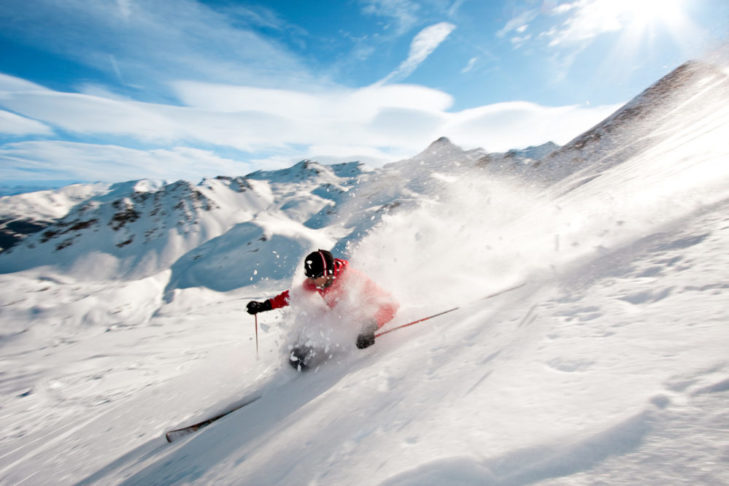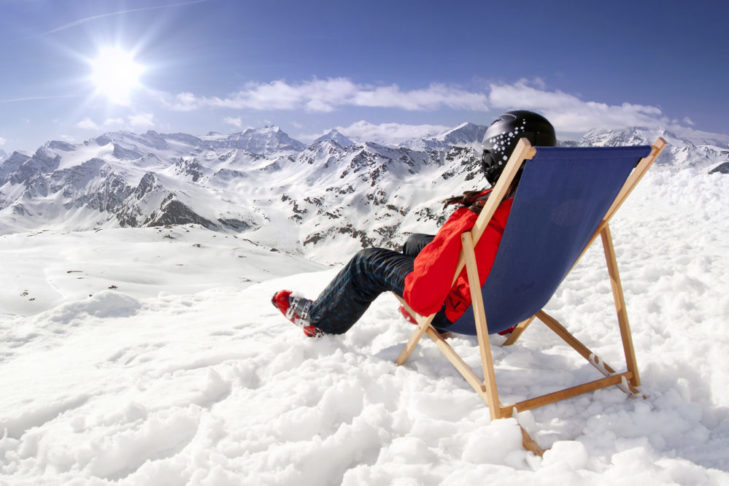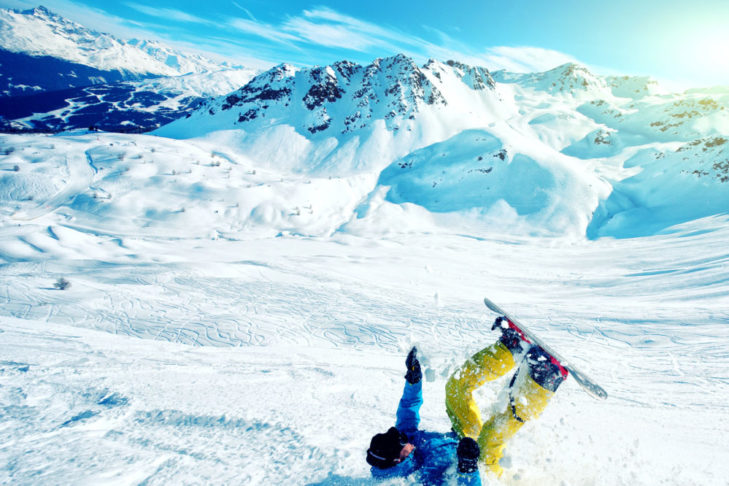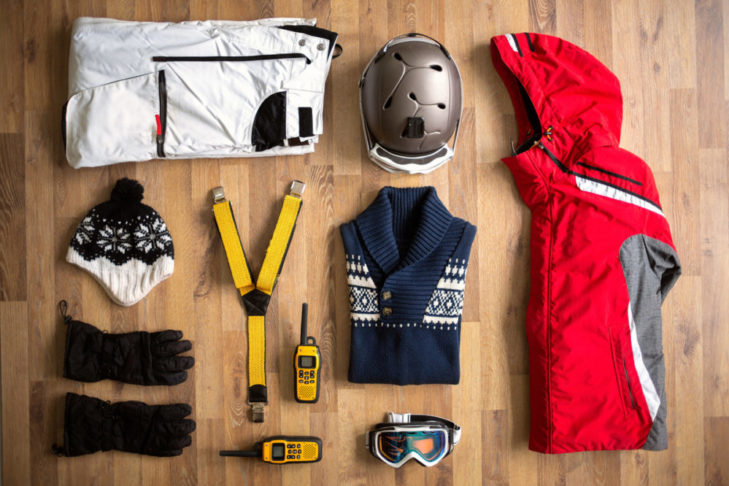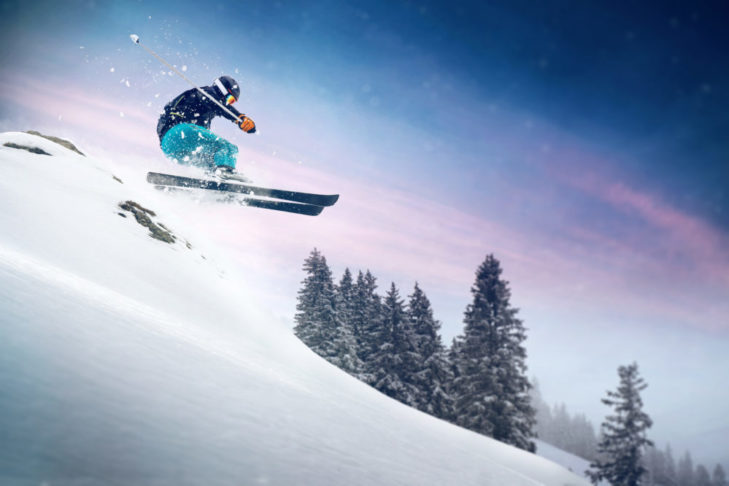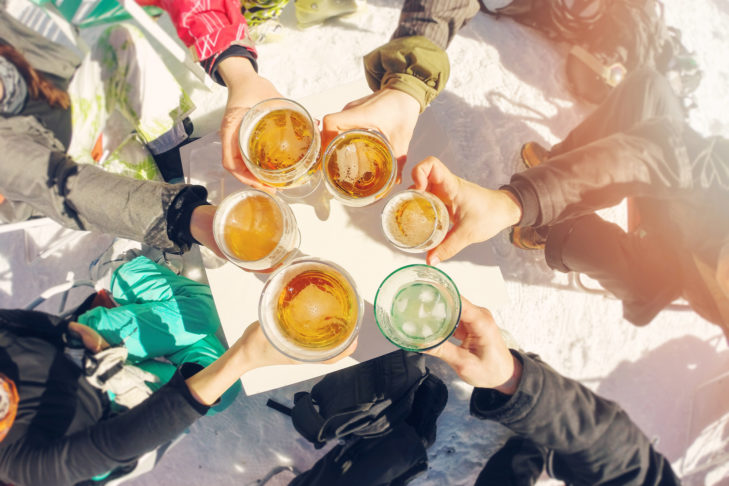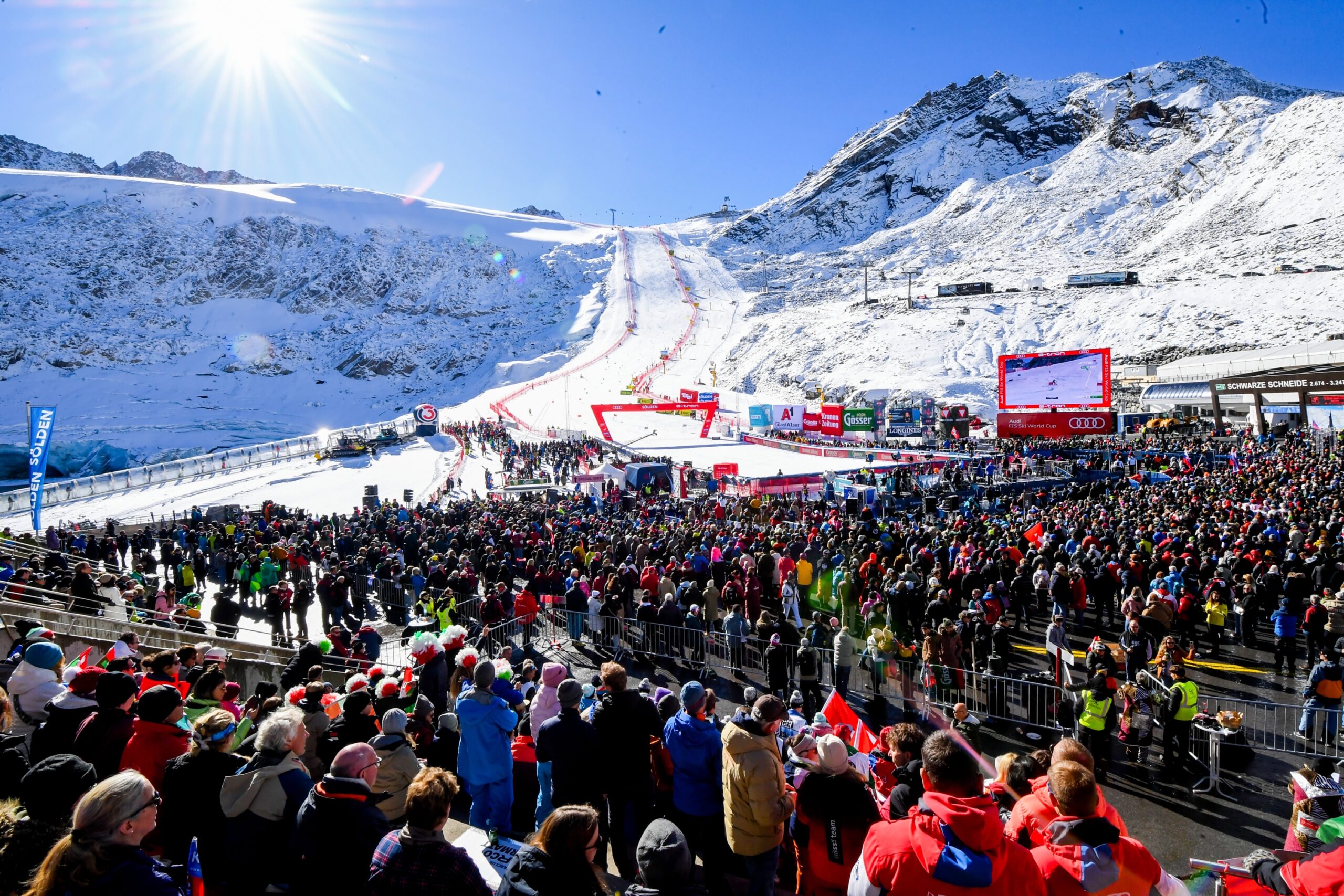Skiing is not only fun, but also healthy. This sport improves your physical condition, is good for your circulation and also increases your general well-being. However, in order to take full advantage of these benefits and to avoid possible injuries, you should be well prepared for the pistes. This is why the German Ski Association (DSV) has drawn up ten basic health rules to help winter sports fans do just that. Those who observe these rules will not only enjoy skiing more, but will also be healthy and as accident-free as possible. SnowTrex shows what winter sports enthusiasts need to bear in mind to be in top shape on the piste.
Being fit is a must
Skiing is not “just going down the mountain”. It requires concentration and a basic level of fitness. The German Ski Association therefore recommends that every skier should regularly train their cardiovascular system.
That doesn’t mean you have to jog five kilometres every day, but regular physical exercise is useful. This could be swimming, yoga, cycling or even just walking. It is not the intensity of the sport that is important, just the regularity of exercise.
Age is no problem when skiing, but a bad state of health is!
Some people mistakenly think that skiing is only for young people. This is not correct; age has nothing to do with the ability to ski. On the contrary, skiing is especially beneficial to the health of older generations. For example, it prevents osteoporosis, strengthens muscle mass, improves coordination and balance and has a positive effect on the psyche.
However, what is equally true for both young and old: poor training and health are a problem when skiing. Anyone who cannot keep up physically or cannot ski for health reasons is primarily putting themselves at risk, but also putting other winter sports fans at risk as well.
Seek medical advice beforehand for these medical conditions
Skiing is very beneficial for the cardiovascular system. However, it can also be a risk factor for certain health problems: these include high blood pressure, diabetes, heart problems and being severely overweight. Skiing can also be a risk to the body if you are taking strong medication, but none of these factors automatically mean that you cannot or should not ski. However, as there is a health risk, it is important to seek the advice of a doctor/specialist in advance in such cases.
Don’t forget to take breaks
Most accidents and injuries are caused by carelessness when skiing. In the late afternoon in particular, when winter sports fans become tired, their attention wanes. To avoid this, regular breaks should be taken, especially after a long descent.
It is also recommended to take it slow during the first few days. The time spent on the piste shouldn’t be too long, especially at the beginning, but instead should be increased continuously.
Besides, who doesn’t like to stop at a rustic hut to recharge their batteries and soak up the sun? Remember: don’t forget sun protection!
Lack of sleep is dangerous
Skiing is a challenging sport. Therefore, not only are regular breaks important, but also enough rest in the evening and, above all, enough sleep. If you give your body enough time at night to rest and recover, you will be fit again the next day.
Overtired skiing is dangerous. Those who have not had enough sleep have reduced attention and concentration, are less able to perform and thus endanger themselves and others.
In case of pain: consult a doctor
Anyone who notices that they have bitten off more than they can chew should listen to their body and not ignore the warning signs. It is of no help to anyone if skiers expect too much of themselves or overestimate themselves and their bodies.
In the case of heart pain, dizziness, palpitations or shortness of breath in particular, you should not continue skiing, but stop immediately and consult a doctor instead.
Choosing the right clothes
Suitable clothing is essential for safe skiing. Because skiers naturally get warm on the slopes, many tend not to dress warmly enough. This is a big mistake. This is because frosty outside temperatures and frequent breaks, during which you not only recover, but also refresh yourself, can quickly lead to hypothermia.
When it comes to winter sports clothing, experts recommend layering in addition to wearing special clothing, such as thermal underwear or shirts made of breathable, functional fibres and water-repellent outer layers. Here, several layers are worn one on top of the other, which stores heat particularly well and thus prevents hypothermia. It also means that you can take off your clothes as soon as you start sweating without wearing too little.
It is also important to avoid clothing that is too tight, as this can reduce blood circulation. This applies especially to shoes.
In addition, technical equipment, especially shoes and binding, should always be up to the latest safety standards. In general, you should also protect yourself with a ski helmet.
Caution instead of over-confidence
Hurtling down the pistes at high speed is, of course, a lot of fun. However, since you are rarely alone on the piste, such exuberance can quickly lead to collisions and unintentional injuries. If you race too fast, you can easily overlook other skiers and not react in time during a dangerous situation. Therefore, anticipatory, careful and considerate skiing avoids accidents.
Skiers should also pay attention to signs and markings. This is because freeriding off-piste involves unexpected dangers such as hidden rocks or tree stumps, which can lead to serious falls and injuries. There is also an increased danger of avalanches in the back country. If something should happen here, rescue teams will need longer to reach the scene of the accident. There is also the possibility of accidents involving skiing, falls in crevasses or drifts.
Off-piste skiing is possible with the right equipment, experience and caution, but skiing on closed slopes or through avalanche-restricted areas is taboo.
Never ski on a full stomach
Even if skiing makes you hungry, you should avoid excessive eating before and during skiing. Heavy meals are also correspondingly heavy on the stomach and have to be digested for a long time. This makes you lethargic and impairs your attention. In addition, sporting activities can lead to heartburn after a heavy meal.
However, it is also not recommended to ski with an empty stomach. As is often the case, it is important to get the right amount. When skiing, small snacks with healthy carbohydrates have proven to be a good idea. At the ski hut, you can enjoy a fresh potato soup or a crispy salad with strips of turkey breast instead of a mighty roast with dumplings or cheese spaetzle. Snacks such as whole grain breads, dried fruit or whole grain biscuits are suitable as a snack in between mealtimes.
Alcohol is taboo
Both before and during skiing, alcohol should never be consumed. As with driving, alcohol in winter sports disturbs our perception and concentration as well as our ability to react. Accidents are inevitable.
There are two additional factors that make skiing more difficult: the altitude and the cold.
It is not correct to say that alcohol acts faster at higher altitudes. However, at higher altitudes, the oxygen content is lower, which leads to reduced alertness and faster fatigue. Alcohol does not increase this effect exponentially, but the combination is not at all beneficial in winter sports, but rather a serious danger.
Alcohol and the cold are also not good conditions. This is because while alcohol warms you up, the opposite actually happens in the body. Alcohol dilates the blood vessels, which causes the body to lose heat more quickly. In addition, under the influence of alcohol, you do not notice the cold right away and believe it to be warmer than it actually is. This, in turn, can quickly lead to dangerous hypothermia.
If you would like to enjoy a few drinks in the evening, you are, of course, more than welcome to do so. The best place to do this is in the midst of a fun après ski party, but it’s better to leave your skis unstrapped afterwards.
FAQs on health rules when skiing
Is skiing dangerous?
No! Skiing in itself is no more dangerous than other sports. If you are in good physical shape, ski attentively and considerately and keep to certain health rules, you will be safe on the piste.
What is the most common cause of accidents in winter sports?
Inattentiveness is the most common cause of accidents and injuries in winter sports. If you are careless and ski carelessly, you endanger yourself and others.
Can older people also ski?
Yes, skiing is just as suitable for older people as it is for younger people. It is even recommended as it is not the age that is important for skiing, but rather the respective state of health and training.
Do I have to do competitive sports to ski?
No. However, skiing requires a certain general level of fitness and stamina. It is therefore recommended to do moderate, yet regular sports outside the skiing season.
Can I go skiing if I have heart and circulation problems?
Heart and circulation problems can be a health risk when skiing. Although most people can still ski, a doctor should be consulted before skiing.
What is the right clothing for winter sports?
In addition to special winter clothing, experts recommend many layers according to prevent hypothermia. It is important that the clothing is not too tight and that the technical equipment meets the current safety standards.
What effect does lack of sleep have on skiing?
Lack of sleep impairs your own performance and also leads to reduced attention on the piste. This increases the risk of accidents and injuries.
Why should you not drink alcohol while skiing?
Alcohol reduces concentration, perceptiveness and reactivity. All this can lead to more accidents and injuries. In addition, the influence of alcohol makes you feel the cold less, which means that you can get hypothermia faster.

